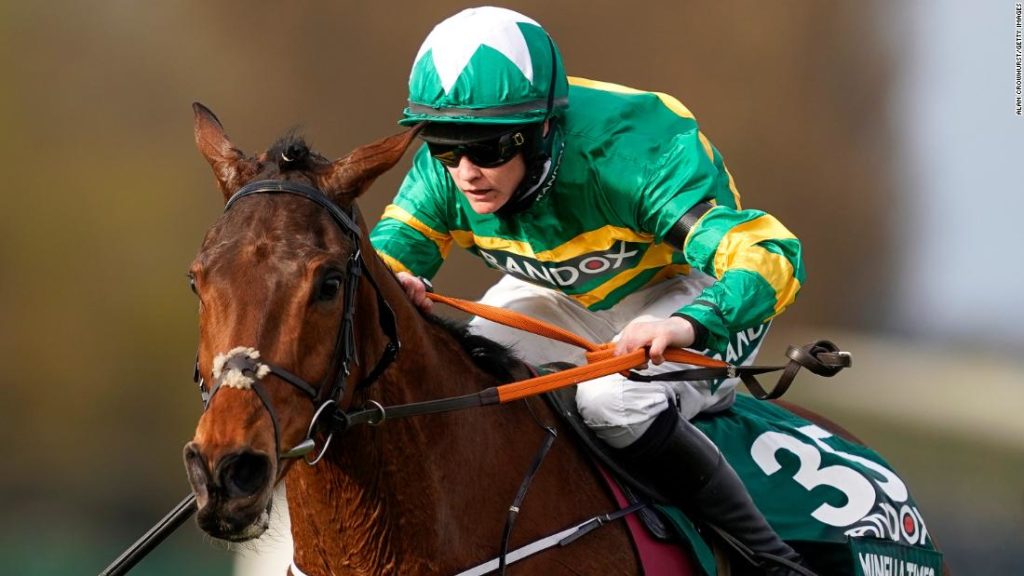“I had some leftover cake from last night,” she tells CNN Sport’s Amanda Davies. “And it was in the colors, green and gold, so very special for me, obviously.
“Not really the breakfast of an athlete that you’d expect, but today was a special occasion.”
After a whirlwind few days, the 31-year-old from County Tipperary, Ireland, admits her achievement is yet to fully sink in. The Grand National is regarded as the most grueling and spectacular steeplechase in the world.
While media attention has focused on the sporting milestone her success represents, the first woman to have won the Grand National says that wasn’t on her mind as she crossed the finishing line.
“You’re just the winning jockey and you’re just ecstatic,” she says. “I’m under no illusions that it is [a milestone] when you’re the first person to do anything, it’s going to be a talking point.
“And, I hope it helps the industry, it helps other jockeys, other female jockeys, but on a personal level, I was just delighted to win the race.”
‘Extremely lucky’
Blackmore points to the strides made by female jockeys before her, and how it fostered a receptive environment for when she, and other women entered the sport.
“I’ve been extremely lucky,” she says. “I think the achievements mainly of Katie Walsh and Nina Carberry when I was entering the weight room.
“They’d ridden multiple winners, Irish Grand National winners. Their achievements had kind of broken down any stigma that may have been lingering in the background.
“It was very much a welcoming place for me to go into, and a level place, and I think racing should be very proud of that, that there is equal opportunity there. If you’re willing, male, or female, if you’re willing to work hard and if you have the talent, you will be given the opportunity.”
However given only three out of the 40 jockeys were female at Saturday’s Grand National suggests there is still work to be done when it comes to equal opportunities in the sport.
Blackmore disagrees, and feels personal choice is the more likely factor for the gender disparity in the race.
“People can forget it’s maybe not a career that a lot of women in the industry, or girls starting out, want to pursue, and that’s just that’s just the way it is,” she says.
“I think if there are girls out there that do want to do it, I really don’t think gender can be used as any kind of a deterrent or an excuse for them to achieve what they want to achieve at this stage.
“It’s a done deal. If you want to be a jockey, you can just you get up, work hard. Gender is gone now, I think.”
You may also like
-
Super League: UEFA forced to drop disciplinary proceedings against remaining clubs
-
Simone Biles says she ‘should have quit way before Tokyo’
-
Kyrie Irving: NBA star the latest to withhold vaccination status
-
Roger Hunt: English football mourns death of Liverpool striker and World Cup winner
-
‘Every single time I lift the bar, I’m just lifting my country up’: Shiva Karout’s quest for powerlifting glory

